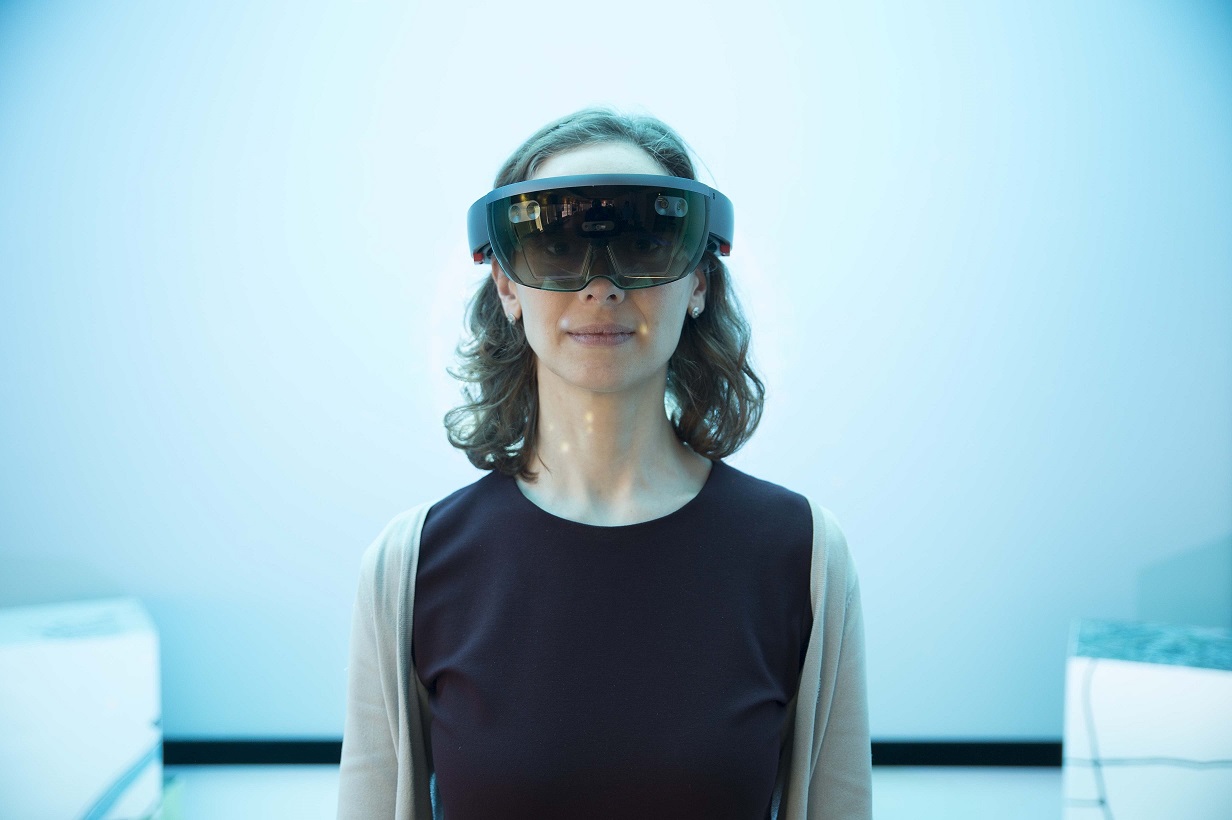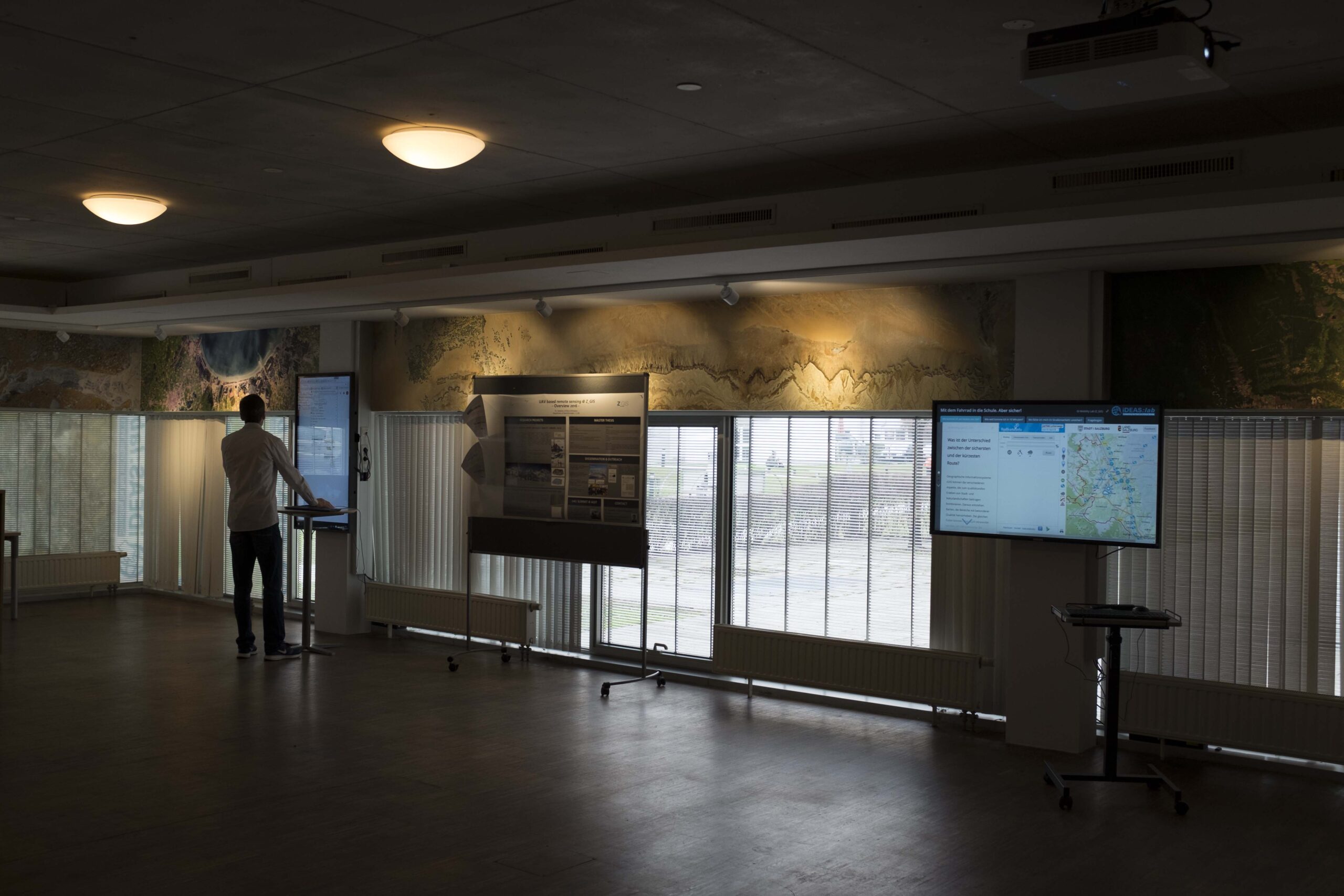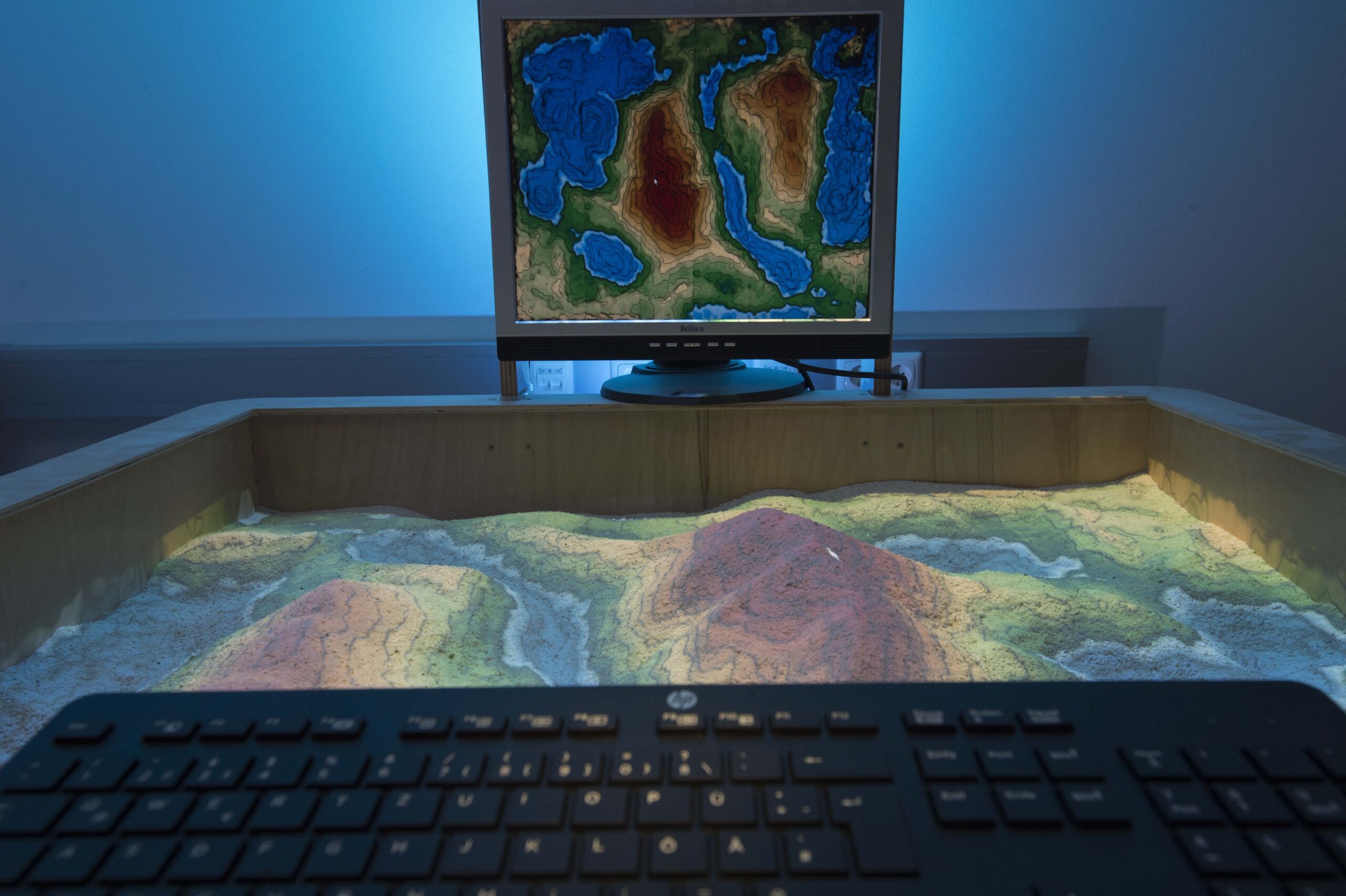DIGITALISATION – INNOVATION – SOCIETY BSC
| Schedule appointment for personal enrolment To register for your studies, you must enter your personal data online. Enter your data and select an appointment. |  DIG Quickinfos |
| Course Duration / ECTS | 6 semesters / 180 ECTS |
| University degree | Bachelor of Science (BSc) |
| Admission Requirements and Curriculum | · Matura or school leaving certificate (e.g., Abitur (GER), GCE levels (UK), Diplome du Baccalaureat de l’Enseignement du Second Degre (F), Titulo de Bachiller (E), Attestat (RSF)), which is comparable in length and quality to the Austrian Matura. · Curriculum |
| Dates and Deadlines | · The dates and deadlines change every semester. · The current deadlines and dates can be found here. |
| Information on the department and departmental student representatives | Department of Geoinformatics |
| Language level required | German B2 |

What will I learn?
Digitalisation – Innovation – Society are the basis for innovation in business and society. DiG graduates work at the forefront of digital transformation using their high level of social and communication skills. They generate innovative information products, communicate effectively and use them to make informed decisions. Students develop a strong orientation in the fields of human-machine, privacy-society and economy-environment interactions, as well as legal frameworks and business perspectives. Fundamentals of computer science, quantitative methods and digital technologies are combined with applied skills in current information and communication technologies. Webpages and apps are designed to be 'smart' interfaces for users, and modern development tools are used to support their processes. Above all, however, students will learn how to keep up with rapid technological progress and how to use this knowledge in the future.

What makes Salzburg so special as a place to study?
Digitalisation – Innovation – Society is an innovative study programme that bridges the gap between the fundamentals of computer science and applications in business and society, in public administration and in various organisations. The University of Salzburg combines proven excellence in computer sciences and geoinformatics, in communication studies and economics as well as law and mathematics/statistics in this degree programme. The selection of specialisation subjects provides students the opportunity to pursue a variety of Master's degrees. The new SciTechHub at the Science City in Itzling, which acts as a direct gateway to companies and the Techno-Z start-up centre, is home to this project-oriented degree programme. Finally, Salzburg is a fantastic place to study in a unique environment.

Which career opportunities do I have?
Digitalisation – Innovation – Society graduates are qualified data specialists and information experts; they conceptualise and generate digital information products to provide a basis for decision-making in business and administration. They contribute to multidisciplinary (development) teams and operate as liaisons to specialists from computer science, design, business and communication. Careers in project management, team leadership in multidisciplinary working groups and management are available to graduates, who are qualified ICT generalists. Companies value flexibility in modern digital fields of activity and support familiarisation with industry-specific processes and technologies. Today, digital innovation applies to all sectors and disciplines – and career prospects are therefore universal.
Postgraduate degree:
Applied Geoinformatics
Fotos: © Luigi Caputo (1-3)





